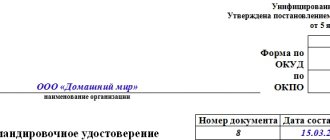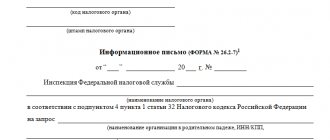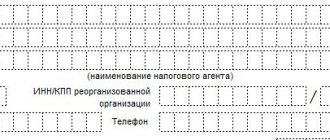The concept of a power of attorney
A power of attorney is recognized as a written authority issued by one person to another person or other persons for representation before third parties (Article 185 of the Civil Code of the Russian Federation).
A power of attorney is a written authority issued by one person to another person or other persons for representation before third parties. Written authority, including representation of interests in court, may be contained both in a separate document (power of attorney), and in an agreement, a meeting decision, unless otherwise established by law or does not contradict the essence of the relationship (clauses 1, 4 of Article 185 of the Civil Code of the Russian Federation, Article 53 of the Civil Procedure Code of the Russian Federation, Article 61 of the Arbitration Procedure Code of the Russian Federation) (clause 125 of the Resolution of the Plenum of the Supreme Court of the Russian Federation dated June 23, 2015 N 25 “On the application by courts of certain provisions of Section I of Part One of the Civil Code of the Russian Federation”).
A power of attorney is a written document; the issuance of a power of attorney is a unilateral transaction.
That is, the mere fact of the existence of a power of attorney as a document does not yet generate authority for the person in whose name the power of attorney is issued, since the power of attorney has not been issued to him.
According to the general meaning and content of the Civil Code of the Russian Federation, a power of attorney can be issued for a representative to carry out transactions on behalf of the represented person, as well as for the representation of interests.
How to properly issue a power of attorney to a legal entity from a legal entity in 2021
You need to know that the document is always drawn up in a single copy. Seals and stamps are optional. In general, it cannot be said that there are any special requirements for drawing up this type of power of attorney. A power of attorney is issued in free form. To fill it out, you can use a ballpoint pen or a computer type. The law does not put forward any restrictions here.
However, do not forget that in order to prepare the document properly, you must adhere to certain rules:
- The document is signed not only by the principal, but also by the authorized representative. Moreover, signatures are not printed, but are affixed “live”;
- the title of the document and the date of its preparation are indicated;
- data of both parties;
- Particular attention should be paid to the precise definition of powers. Try to list all the actions that he will perform on behalf of the principal. This list constitutes the main part of the document;
- It should be noted whether the trustee is allowed to draw up a subpoena or whether he does not have such a right.
Once the document has been signed, the information and data in it cannot be changed. However, if a typo or mistake is made, it can be corrected. But at the same time, a corresponding note is made in the document, which indicates this correction. The signatures of the parties must also be included here.
Step-by-step instructions for compiling:
- its title is indicated at the top of the document;
- The place and date of compilation are indicated below;
- then the data of the legal entity-principal is entered;
- the full name and position of the manager, represented by the trustor company, is indicated;
- information about the company that becomes the trustee is noted;
- all the powers vested in the authorized company are spelled out in detail;
- the validity period is indicated;
- it is noted whether the attorney has the opportunity to draw up a sub-power of attorney for third parties;
- all of the above is confirmed by the signatures of both parties.
Samples of powers of attorney
Power of attorney to drive, own and dispose of a car:
- Power of attorney for the right to drive a vehicle issued by a citizen
- Power of attorney for the right to drive a vehicle issued by a legal entity
- Power of attorney for the right to own and use a car
- General power of attorney for the disposal of a vehicle (with the right to sell)
Power of attorney for inheritance:
- Power of attorney for registration of inheritance, obtaining a certificate of right to inheritance
- Power of attorney to conduct inheritance business
Power of attorney to conclude an agreement:
- Power of attorney to conclude a purchase and sale agreement
- Power of attorney to conclude a residential lease agreement
Power of attorney for property management:
- Power of attorney for managing a private residential building
- General power of attorney for managing a citizen’s property
Power of attorney to receive:
- Power of attorney to receive salary
- Power of attorney to receive a pension
- Power of attorney to receive correspondence
- Power of attorney to receive cargo
Power of attorney for voting at the general meeting:
- Power of attorney for the right to vote at a general meeting of owners of premises of an apartment building
- Power of attorney to participate in voting at the general meeting of members of SNT, ONT, DNT
Power of attorney for registration of rights:
- Power of attorney for registration of ownership of land
Power of attorney to represent interests in court:
- Power of attorney to represent the interests of the organization in the courts
- Power of attorney to conduct business in an arbitration court
- Power of attorney for the right to represent the interests of a legal entity in a district court
- Power of attorney to represent the interests of an individual in court
- Power of attorney to represent the interests of the HOA in court (with general powers for several persons)
- Power of attorney to represent the interests of a legal entity in an administrative case
- Power of attorney to represent interests in court in an administrative case
Power of attorney with the tax authority:
- Power of attorney for representation of interests in tax authorities
Agency agreement
In its legal structure, a power of attorney has common features with a contract of agency. Moreover, in a number of cases, the execution of an agency agreement will be an effective way to carry out legally significant actions in the interests of a legal entity.
Articles 971 of the Civil Code of the Russian Federation and 975 of the Civil Code of the Russian Federation
Article 971 of the Civil Code of the Russian Federation stipulates that an order implies an obligation to perform a number of actions provided for by the subject of the agreement, on behalf and at the expense of the principal. Based on the definition of this type of agreement, significant differences can be identified between these forms of representation of interests:
- As part of the receipt, the trustee has an obligation to perform actions included in the subject of the agreement, while the issuance of a power of attorney does not give rise to such an obligation;
- An assignment is one of the forms of civil transactions, therefore it may provide for the payment of remuneration for the representation of interests (a power of attorney cannot provide for such a condition).
However, Art. 975 of the Civil Code of the Russian Federation actually erases this difference, since the performance of actions within the framework of an order requires the presentation of a power of attorney to third parties to conduct business. Based on this, the conclusion of an agency agreement will be justified only if it is necessary to establish the obligation of the trustee to perform legally significant actions in the interests of the principal.
Example of an agency agreement between legal entities
Types of powers of attorney (one-time, special, general)
Depending on the scope of powers, several types of powers of attorney are conventionally distinguished:
One-time power of attorney. Such a power of attorney may provide for the authority for the representative to perform a one-time action, for example, to receive a sum of money due to the represented person or to enter into a specific agreement.
Special power of attorney . Such a power of attorney may contain powers to perform several cumulative or ongoing actions that are inextricably linked by a common goal, a common subject and (or) a common procedure and aimed at achieving one legal result, for example, to carry out transactions in a specific field of activity, representation in tax authorities, court Such a power of attorney can be issued for the purchase of similar goods in different territories at the same time or within certain periods.
General power of attorney (“general power of attorney”). Such a power of attorney may contain powers to use and dispose of all the property of the represented person and to exercise his rights and obligations, incl. for representation before any third parties on all issues and for conducting any business on behalf of the represented person. An example of a general power of attorney is a power of attorney issued to its head to manage the activities of a branch or representative office on behalf of the parent organization. General powers of attorney also include a power of attorney issued to manage an enterprise, a power of attorney for a commercial representative, etc.
Is it possible to change the details
The provisions of the power of attorney cannot be changed after it has been signed. You can make minor changes if a mistake was made. After making changes, you must put a signature, seal and a note about the correction.
Remember! Any amendment to the power of attorney can only be made by the organization that issued it. More specifically, its employee authorized to do this. If it is necessary to change the powers or the attorney, the old power of attorney is revoked and a new one is drawn up.
A power of attorney is a document that is issued by an organization to its attorney for him to represent its interests. After issuing a power of attorney, the representative can sign contracts, payment documents and perform other actions provided for by the trust document on behalf of the legal entity.
Powers of attorney are used in various circumstances, most often these are:
- representation of a legal entity in government bodies and institutions;
- when interacting with judicial authorities;
- when receiving parcels and documentation at the post office or courier service;
- when registering the company's vehicles with the traffic police. When driving cars owned by the organization.
Form of power of attorney – when is notarization of a power of attorney required?
The form of power of attorney is written only . The Civil Code of the Russian Federation also provides for a qualified written (notarial) form. Clause 1 of Article 185.1 of the Civil Code of the Russian Federation indicates cases when a notarized form of power of attorney is required:
- 1) to carry out transactions that require a notarial form (we recommend the article: “Transactions subject to mandatory notarization”);
- 2) to submit applications for state registration of rights or transactions;
- 3) to dispose of rights registered in state registers.
This norm contains a non-exhaustive list of cases. The law may provide for other cases when a notarized form of power of attorney is required.
By agreement of the parties, any transaction can be put into notarial form, at least by law this form was not required for transactions of this type (subclause 2, clause 2, article 163 of the Civil Code of the Russian Federation).
Paragraph 2 of Article 185.1 of the Civil Code of the Russian Federation lists the types of powers of attorney equivalent to notarized ones.
Clause 3 of Article 185.1 of the Civil Code of the Russian Federation contains a simplified version of certifying certain powers of attorney (for receiving wages, benefits, scholarships, etc.). Such powers of attorney can be certified at the place of work, service, etc. In these cases, certification is provided free of charge.
In addition, the notarial form is also required for powers of attorney:
- 4) issued by way of delegation (clause 3 of Article 187 of the Civil Code of the Russian Federation), except in cases where such powers of attorney are issued by legal entities or the heads of their branches and representative offices;
- 5) irrevocable (clause 2 of article 188.1 of the Civil Code of the Russian Federation).
Validity periods
The validity period of the power of attorney depends on the wishes of the principal. There are no restrictions on the validity period of a power of attorney. But the organization that issued the trust document can revoke it or invalidate it at any time.
An organization can delegate any powers to attorneys if their implementation does not contradict the legislation of the Russian Federation. But there is a peculiarity for legal entities with special legal capacity.
If a non-profit association issues a power of attorney, then the transferred powers should not run counter to the specialization of the activities of such an organization. If this rule is not observed, the trust document can be challenged in accordance with Art. 173 of the Civil Code of Russia.
Certificate of power of attorney to represent interests in court
Power of attorney issued by a legal entity
Procedural legislation contains special requirements for certification of a power of attorney to represent interests in court, in particular, when checking the form of a power of attorney certifying the powers of representatives of legal entities participating in the case, courts should be guided by the provisions of Part 3 of Art. 53 Code of Civil Procedure of the Russian Federation, Part 5, Art. 61 Arbitration Procedure Code of the Russian Federation, Part 6, Art. 57 CAS RF. Notarization of such a power of attorney is not required.
About the press of the society...
From 04/07/2015, business companies are not required to have a seal. Accordingly, as a general rule, certification of the power of attorney with the seal of the organization is not required.
In response to question 10 of the Review of Judicial Practice of the Supreme Court of the Russian Federation No. 2 (2015); approved by the Presidium of the Armed Forces of the Russian Federation on June 26, 2015, it is stated that when federal law does not provide for such an obligation to have a seal and it is indicated that an organization has the right to have a seal, a representative of the organization must provide the court with its constituent documents or their duly certified copies. If they contain information about the presence of a seal, then the power of attorney to represent the interests of the specified organization in court must be certified by the signature of its head or another person authorized to do so by its constituent documents and at the same time by the seal of the organization. In the absence of such information, a stamp to certify the power of attorney to represent interests in court is not required.
See in more detail the extract from the review of the practice of the RF Armed Forces below in the attachment
Power of attorney issued by an individual
A power of attorney issued by an individual must be certified by a notary, or certified by officials of organizations and institutions specified in Article 185.1 of the Civil Code of the Russian Federation, as well as in the mentioned Articles 53 of the Code of Civil Procedure of the Russian Federation, 57 of the Code of Arbitration Procedures of the Russian Federation. Such powers of attorney are equivalent to notarized ones.
Form
The law does not require the use of any special form when registering this type of power of attorney. It is allowed to use a familiar template or compose a document in free form. You can use a regular sheet of paper for this. However, practice shows that most organizations develop their own individual form for these purposes. It is preliminarily approved by the director and the company’s charter. Regardless of which form was chosen, the power of attorney must have a structure appropriate for the given type of document.
Who can act as a proxy
When drawing up a power of attorney, two parties are indicated. One of them is the principal. His role can be played by an authorized representative of the organization, usually a manager. The party accepting the authority is the authorized organization. If we are talking about a company here, then it can represent the interests of the principal with the help of an executive body.
Thus, we can say that if a power of attorney is issued to a legal entity, the head of the attorney company must fulfill certain duties. Sometimes a situation may arise when a manager wishes to delegate the powers assigned to him to some other employee of his organization. However, this can only be done if the principal has provided the opportunity to formalize the transfer of trust. In the absence of such authority, duties cannot be assigned to another employee.
( Video : “Require a power of attorney from all structures representing the Russian Federation!”)
Methodological recommendations of the Federal Tax Service on certification of powers of attorney
We recommend:
Letter of the FNP dated July 22, 2016 N 2668/03-16-3 “On Methodological Recommendations for Certifying Powers of Attorney” (together with the “Methodological Recommendations for Certifying Powers of Attorney”, approved by the decision of the FNP Board dated July 18, 2016, Protocol No. 07/16)
Application. Guidelines for certifying powers of attorney
1. General provisions 2. Essence of representation 3. Subjects of the power of attorney 4. Contents of the power of attorney 5. Certification of the power of attorney 6. Form and details of the power of attorney 7. Subassignment 8. Duration of the power of attorney 9. Number of copies 10. Termination of the power of attorney 11. Certification of the irrevocable power of attorney (Art. 188.1 of the Civil Code of the Russian Federation) 12. Tariff for certification of a power of attorney Appendix. Age of majority in different countries of the world
Principal and attorney
A power of attorney has two key aspects. The person or body authorized to issue a power of attorney according to the company’s constituent documentation (for example, the general director) is called the principal.
Important! If TSN wants to issue a power of attorney, then this can only be done by the board of the partnership or the general meeting of owners. The second party to the trust document is the attorney. According to the Decision of the Supreme Court of the Russian Federation of June 6, 2011 No. GKPI11-617, any person who is not deprived of legal capacity can act as an attorney in a power of attorney.
Is it possible to revoke a document?
Current civil legislation provides for the right of the person who issues the power of attorney to revoke it at any time. If the power of attorney is no longer valid, it can be revoked. In any case: whether it was a revocation, annulment or cancellation, the person who issued the document is obliged to notify all interested parties of his decision. Ideally, it is better to get the original copy of the power of attorney back.
Formatting the main part of the document
- In the “header” of the document the word “Power of Attorney” is written with a brief designation of the action for which it was issued. Here you also need to enter the power of attorney number for internal document flow.
- The line just below indicates the locality in which the document is drawn up, as well as the date it was completed (day, month (in words), year).
- Next, you should enter the details of the legal entity that grants the interests: the full name of the enterprise (indicating its organizational and legal form), OGRN, INN, KPP (this information can be found in the registration documents of the enterprise), its legal and actual address.
- Then you need to write the position of the employee on whose behalf this document is being drawn up (usually a director, general director of an organization or a person authorized to sign such papers), his last name, first name, patronymic (first name and patronymic can be indicated as initials), as well as the document , on the basis of which the principal acts (as a rule, this line is written “Based on the Charter” or “Regulations”).
- After this, personal information regarding the representative is entered. This indicates his last name, first name, patronymic and identification document (name, series, number, when and by whom it was issued), place of permanent registration (according to the passport).
- The following briefly indicates why the document was drawn up.
- Below, the power of attorney contains a detailed description of the powers that the principal entrusts to his representative. The institution or enterprise for presentation at which the power of attorney will be valid is also indicated.
Duration of the power of attorney and signatures of the parties
At the conclusion of the document, the period for which the power of attorney was issued is indicated.
Here you can specify any period, but if there are no specific numbers, then the power of attorney will automatically be considered valid for a year from the date of issue.
Then the authorized person puts his signature under the document, which is certified by the head of the principal legal entity. The latter also signs the power of attorney and puts the seal of the organization (from 2021, legal entities are not required to use stamps and seals when working, however, many government and non-government organizations, as before, require an imprint on documents).
Preparation of documentation and applications to a notary
If the power of attorney requires notarization, the head of the company must be present during the procedure.
Video
The authorized representative may not visit the specialist. However, the citizen’s passport data will be required to carry out notarization.
A number of documents are required, the list of which includes:
- passport of the principal and passport details of the person to whom the authority to represent the LLC is transferred;
- the charter of the institution and the order for the appointment of a director;
- company details and sample seal;
- extract from the Unified State Register of Legal Entities received within 30 calendar days.
Notary services must be paid. Their price varies from 1000 to 3000 rubles. It all depends on the specifics of the current situation and the specific city.
Video
Drawing up a notice in other cases
When drawing up a power of attorney for the exercise of powers in commercial institutions, it is necessary to take into account the specific policies of such companies.
It is important to understand the scope of activity and the possible consequences of incorrect document preparation:
| Megaphone | When drawing up a power of attorney to represent the interests of a company in the Megafon company, you need to indicate in the content the correct wording of the powers being transferred:
It is imperative to indicate in which department all the above actions are allowed. |
| MTS | A power of attorney for submission to MTS is not much different from a similar document for Megafon. You also need to indicate your authority; the registration procedure is standard and does not differ in any special features. The same is true for VimpelCom, Yota, Tele2 and other mobile operators. The only clarification concerns the need to register the address of the MTS office, where the authorized person can act in accordance with the assigned powers. |
| Raiffeisen | To prevent financial problems from arising, when registering a power of attorney with Raiffeisen, you must correctly indicate the powers:
It is not recommended to provide for the possibility of reassignment. It is better to issue a power of attorney for each representative, if necessary. This advice applies not only to Raiffeisen, but also to Uralsib, Sberbank, Alfa Bank and other financial and credit institutions in the country. |
Leave a comment on the document
Do you think the document is incorrect? Leave a comment and we will correct the shortcomings. Without a comment, the rating will not be taken into account!
Thank you, your rating has been taken into account. The quality of documents will increase from your activity.
| Here you can leave a comment on the document “Sample. Power of attorney for the right to carry out operations on behalf of the enterprise”, as well as ask questions associated with it. If you would like to leave a comment with a rating , then you need to rate the document at the top of the page Reply for |
Comment on the rating
Thank you, your rating has been taken into account. You can also leave a comment on your rating.
Is the sample document useful?
If the document “Sample.
Power of attorney for the right to carry out operations on behalf of the enterprise" was useful for you, we ask you to leave a review about it. Remember just 2 words:
Contract-Lawyer
And add Contract-Yurist.Ru to your bookmarks (Ctrl+D).
You will still need it!








